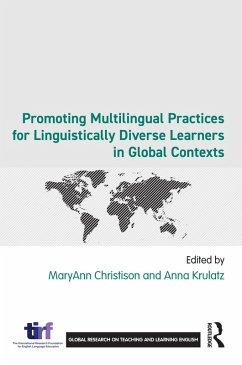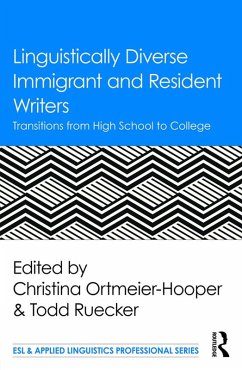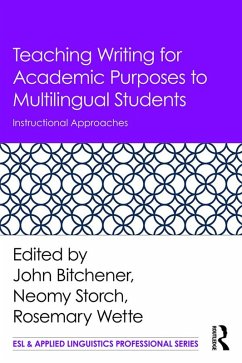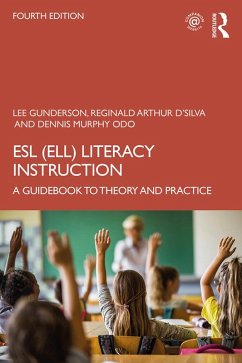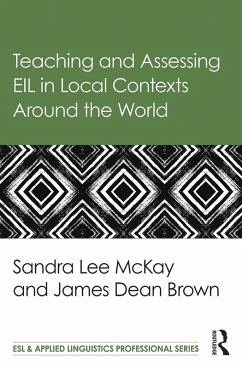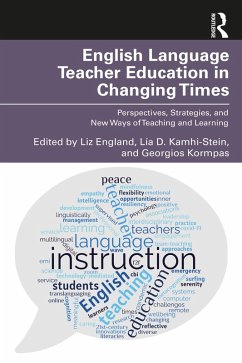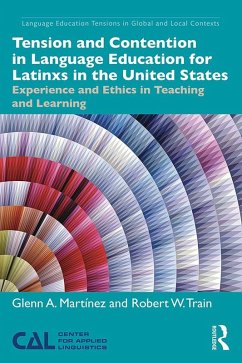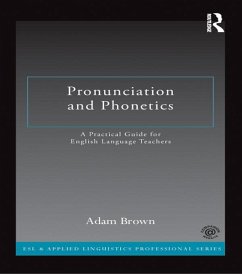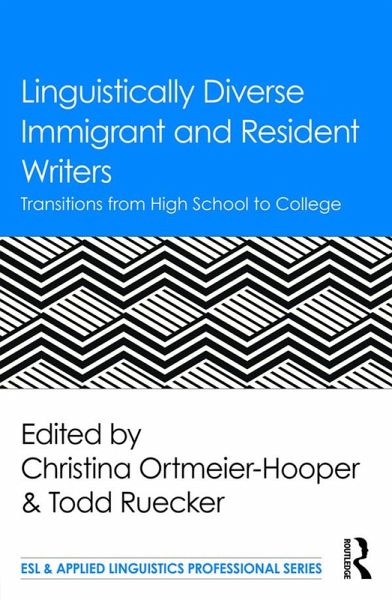
Linguistically Diverse Immigrant and Resident Writers (eBook, ePUB)
Transitions from High School to College
Redaktion: Ortmeier-Hooper, Christina; Ruecker, Todd
Versandkostenfrei!
Sofort per Download lieferbar
46,95 €
inkl. MwSt.
Weitere Ausgaben:

PAYBACK Punkte
23 °P sammeln!
Spotlighting the challenges and realities faced by linguistically diverse immigrant and resident students in U.S. secondary schools and in their transitions from high school to community colleges and universities, this book looks at programs, interventions, and other factors that help or hinder them as they make this move. Chapters from teachers and scholars working in a variety of contexts build rich understandings of how high school literacy contexts, policies such as the proposed DREAM Act and the Common Core State Standards, bridge programs like Upward Bound, and curricula redesign in firs...
Spotlighting the challenges and realities faced by linguistically diverse immigrant and resident students in U.S. secondary schools and in their transitions from high school to community colleges and universities, this book looks at programs, interventions, and other factors that help or hinder them as they make this move. Chapters from teachers and scholars working in a variety of contexts build rich understandings of how high school literacy contexts, policies such as the proposed DREAM Act and the Common Core State Standards, bridge programs like Upward Bound, and curricula redesign in first-year college composition courses designed to recognize increasing linguistic diversity of student populations, affect the success of this growing population of students as they move from high school into higher education.
Dieser Download kann aus rechtlichen Gründen nur mit Rechnungsadresse in A, B, BG, CY, CZ, D, DK, EW, E, FIN, F, GR, HR, H, IRL, I, LT, L, LR, M, NL, PL, P, R, S, SLO, SK ausgeliefert werden.




